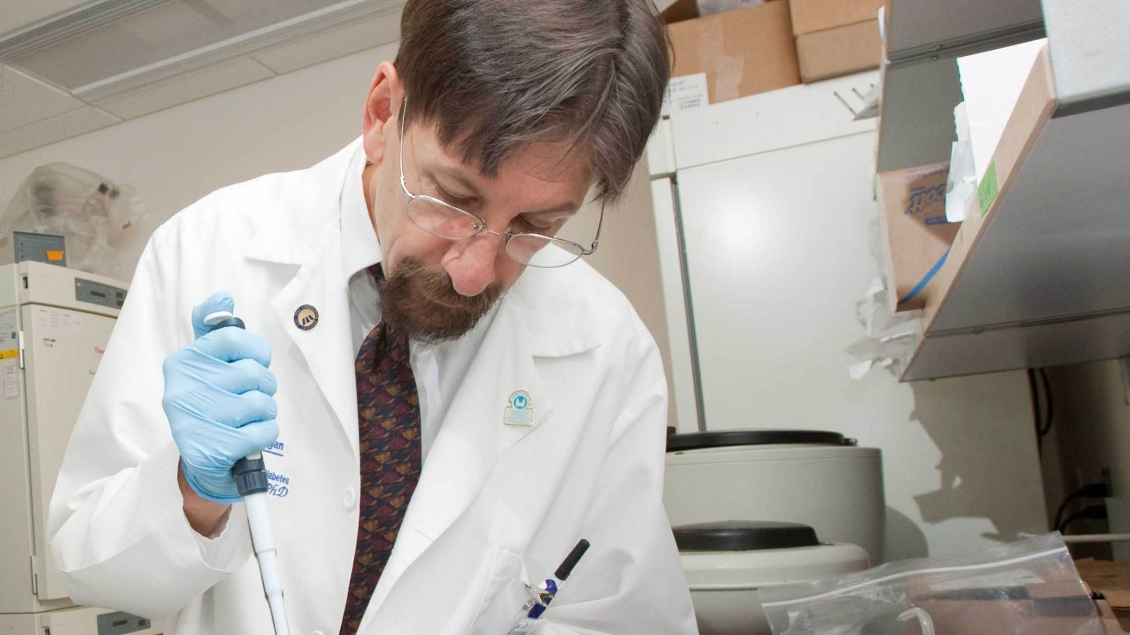-
Allergy & Clinical Immunology -
Cardiovascular Medicine -
Gastroenterology & Hepatology -
General Medicine -
Genetic Medicine -
Geriatric & Palliative Medicine -
Hematology & Oncology -
Hospital Medicine -
Infectious Diseases -
Metabolism, Endocrinology & Diabetes -
Nephrology -
Pulmonary & Critical Care Medicine -
Rheumatology

Research in the U-M Medical School Department of Internal Medicine Division of Metabolism, Endocrinology & Diabetes has paved the way for more effective methods of prevention, diagnosis, and treatment of endocrine and metabolic disorders.
Research areas in the division cover a wide range of diseases and their related complications, including adrenal, thyroid, and pituitary disorders, diabetes, obesity, hormone-related cancers, bone diseases, lipid disorders, and neuroendocrine diseases.
Our multidisciplinary approach fosters innovation and collaboration across various research centers and programs where many of our faculty also hold leadership positions.
Research Goals
- Facilitate and focus basic molecular and cellular research in all areas of metabolic and endocrine disorders
- Promote the validation and application of relevant new basic knowledge in the clinical arena through rational, innovative and streamlined clinical, epidemiological and outcomes research
- Evaluate, refine, and disseminate new clinical knowledge regarding diabetes and related disorders into community health practices, especially in those communities at increased risk
- Recruit, train, motivate, and retain an effective pool of basic and clinical investigators and health care professional personnel in all areas of endocrinology and metabolism
T32 Training Program
Our Multidisciplinary Postdoctoral Training Program in Basic Diabetes Research is designed to prepare PhD basic scientists for careers in diabetes research.
Dr. Peter Arvan, former division chief, shares about the division's work on diabetes.
Advanced training and collaborative research involving faculty, fellows, medical students, and graduate students expands the base of scientific knowledge required for cures and improved clinical outcomes. Our centers include:
- Brehm Center for Diabetes Research
- Michigan Diabetes Research Center (MDRC)
- Michigan Nutrition Obesity Research Center (MNORC)
- Michigan Mouse Metabolic Phenotyping Center (MMPC)
Our division also conducts research in collaboration with the Michigan Medicine Rogel Cancer Center. Research programs include:
The legacy of Dr. Jerome Conn (former Division Chief of Metabolism, Endocrinology & Diabetes) includes his discovery of the syndrome that bears his name - listen to him describe it in his own words.